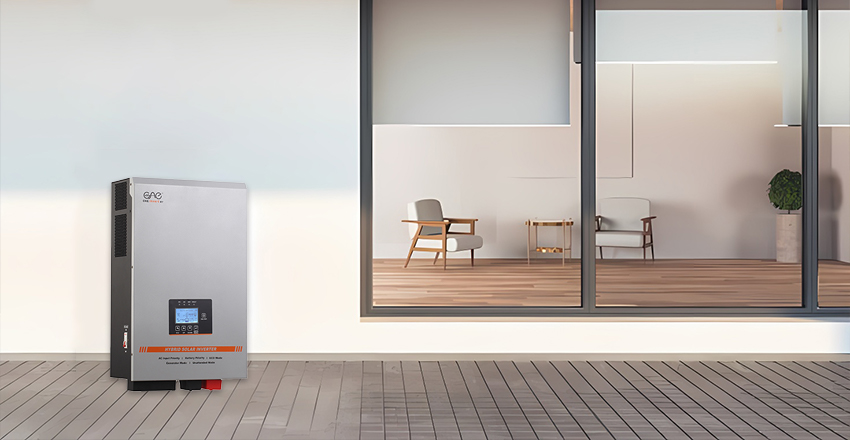Solar Inverters— Changing the GameSolar Inverters with a Battery:Shaping how we generate, store, and utilize power in the Renewable Energy arena Comprising energy conversion and storage, these integrated systems are a unified and efficient energy buffer to supply contemporary energy requests. Due to their versatility, they are suitable for a variety of applications — from residential homes to large-scale industrial setups. In this article, we will be looking at all solar inverters with batteries, including their advantages, working principles, and transformational capabilities.

Solar energy is intermittent, available only when the sun is shining. These challenges include ensuring a constant power supply, particularly in the dark or on cloudy days. Batteries address this issue by storing excess solar energy produced during the day to be used when the sun isn’t shining.
Batteries function by absorbing and storing energy generated by solar panels during the day. This energy can then be utilized on demand, acting as a backup power source when required. This is where these systems come in handy for homeowners and businesses in areas with unreliable grid power availability, or those looking for energy independence.
Solar inverters and batteries make a complete solar power system together. A solar inverter with battery storage enables homeowners not only to convert DC energy into AC energy, but also to store excess energy for future use as well. So, this means both real-time energy conversion and long-term energy storage integrated in one device. The solar inverter does this by controlling how energy flows from the panels to the home (or business) and back into battery storage. It does this by ensuring that energy is flowing as where it needs to go, between all the solar panels, the home or business, and the battery to maximize solar power consumption.
Energy Independence: Integrated solar energy and battery storage enables home and businesses to use less grid power. It is especially useful in regions with unreliable grids or frequent outages. In times of high consumption or grid collapses, a battery-operated solar system can be used as a back-up source of energy, thus minimizing reliance on the external grid.
The most notable benefit of solar inverters with batteries is the potential cost savings. This allows excess energy to be stored in the system during the day, which can then be used at night, helping homeowners avoid purchasing electricity from the grid, which tends to be pricier during peak hours. After some time, it can lead to substantial electricity bill savings.
Solar energy is one of the cleanest and most renewable sources of energy and its sustainability is increased as energy stored in the battery. Solar inverter batteries help us use solar power efficiently, which raises the question of their fossil fuel consumption and lowers carbon emissions. Their incorporation is a key component of any green energy plan.
A solar inverter with a battery can serve as a backup source of energy in case of a power outage. It will provide energy to the home or business, keeping lights, refrigerators and medical equipment — the essentials — circulating power. This is particularly beneficial in areas that are storm-prone and/or have an unstable grid.
Having battery storage systems with solar inverters ensures energy is used properly. These systems reduce wastage and ensure that maximum solar energy is utilized by storing excess solar power received during the day and consuming it when the sun goes down.
Storage solar inverters are innovative technology in the production of energy, bringing energy efficiency and economic independence at the same time. These systems leverage the conversion and storage of solar energy to create a dependable and sustainable power source, decreasing dependence on the grid and contributing to reductions in energy expenses. As the demand for renewable energy solutions continues to rise, employing solar inverters paired with batteries is an important step towards a cleaner and more efficient future. Residential or commercial applications, solar inverters with batteries offer a versatile and long-term solution for meeting energy demands.